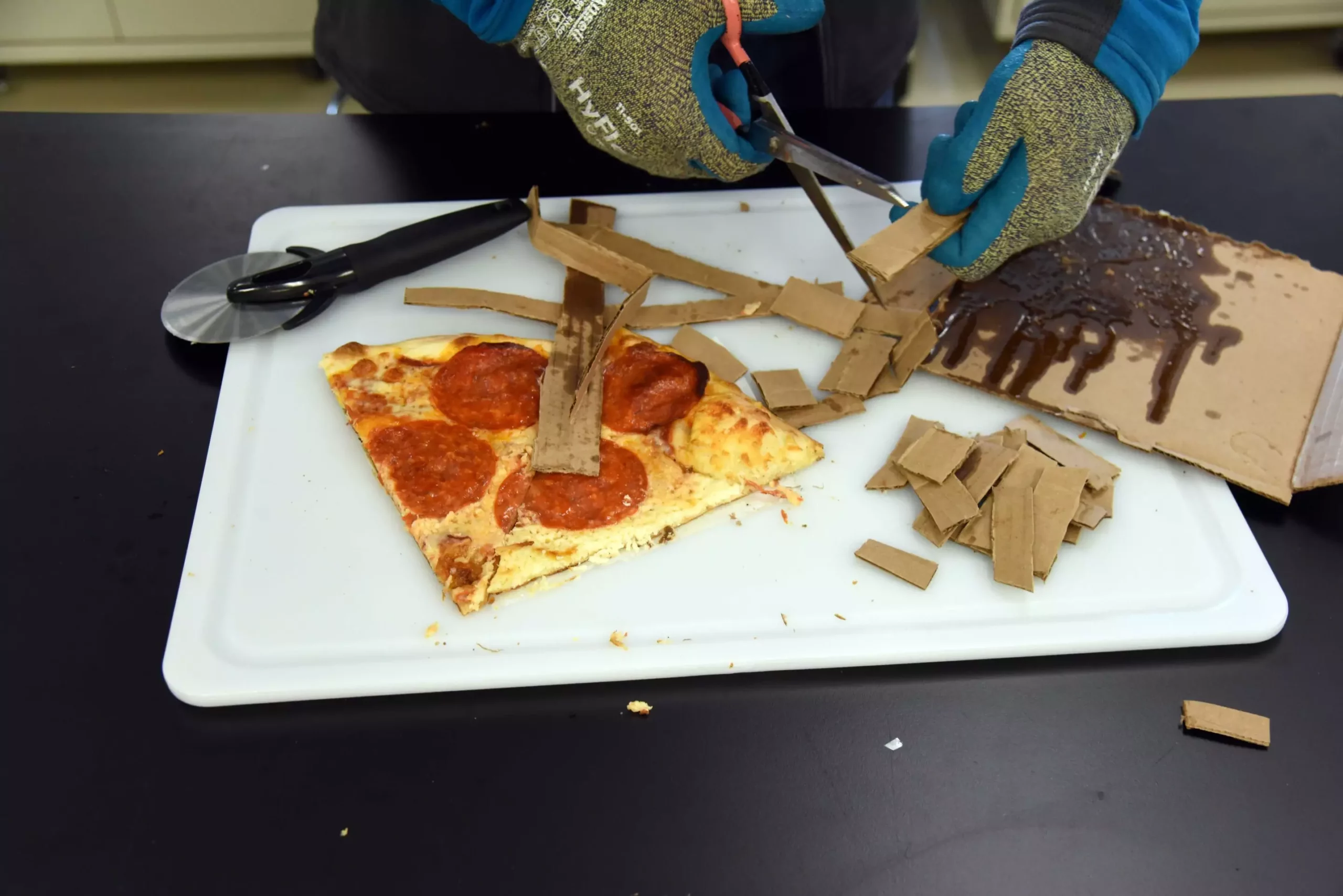Pizza boxes are a ubiquitous part of American culture, with millions of pizzas being consumed daily. However, the issue of recycling these containers has always been a significant challenge due to the grease and cheese contaminants left behind. Traditional recycling methods have proved ineffective in dealing with these contaminants, leading to a massive amount of pizza boxes being discarded as waste.
The contaminants found in pizza boxes, known as FOGs, including fats, oils, and greases, make it impossible to recycle these boxes using conventional methods. The presence of cheese and grease in the cardboard poses a considerable challenge to separating these materials effectively, making the recycling process inefficient and costly. As a result, a large portion of pizza boxes ends up in landfills, contributing to environmental pollution.
Researchers at the Idaho National Laboratory (INL) have taken on the challenge of solving the pizza box recycling problem through a groundbreaking approach. The study published in the Journal of Cleaner Production outlines a new method of decontaminating cardboard using material separation capabilities. By utilizing dimethyl ether (DME), an environmentally friendly chemical, the research team has developed an experimental system to effectively remove contaminants from pizza boxes.
The experimental system created by the research team features two vertical stainless-steel reactors designed to separate liquids from solids using DME as a solvent. The contaminated cardboard pieces are loaded into the first reactor, where the solvent is added to trigger a chemical reaction that extracts the contaminants. The solvent is then drained into the second reactor, where the FOG contaminants, water, and salts are concentrated and collected separately. This revolutionary process ensures the efficient extraction of contaminants from the cardboard, making it suitable for recycling.
The DME extraction process offers a significant improvement over traditional water washing methods, which result in a large volume of wastewater containing diverse contaminants. In contrast, the closed-loop system of DME recycling enables the cleaning of new waste items without generating additional waste. The scalability of the process makes it a viable solution for various applications, from pizza box recycling to repurposing military waste.
The success of the pizza box recycling case study opens up possibilities for future projects that aim to convert waste into reusable materials. The application of the extraction process to military waste repurposing projects highlights the versatility and efficiency of the method. By making the system lighter and more compact, researchers are working towards implementing this technology in military settings with stringent weight requirements. Additionally, the potential use of the solvent extraction process for recycling batteries demonstrates the versatility and applicability of this innovative approach to waste management.
The innovative approach to pizza box recycling developed by researchers at the Idaho National Laboratory represents a significant step towards making the food industry more sustainable. By effectively extracting contaminants from cardboard using DME, the recycling process can be streamlined and made more environmentally friendly. The success of this method not only benefits the pizza industry but also paves the way for broader applications in waste management and recycling. Ultimately, this project contributes to the vision of a circular economy where all materials can be reused and repurposed, leading to a more sustainable future.


Leave a Reply